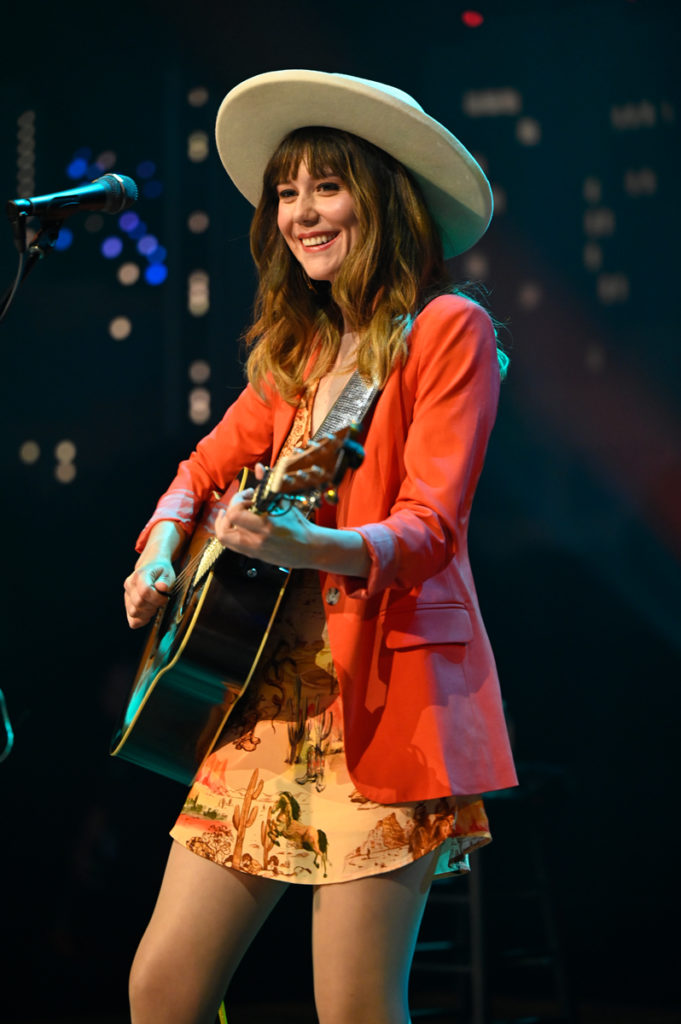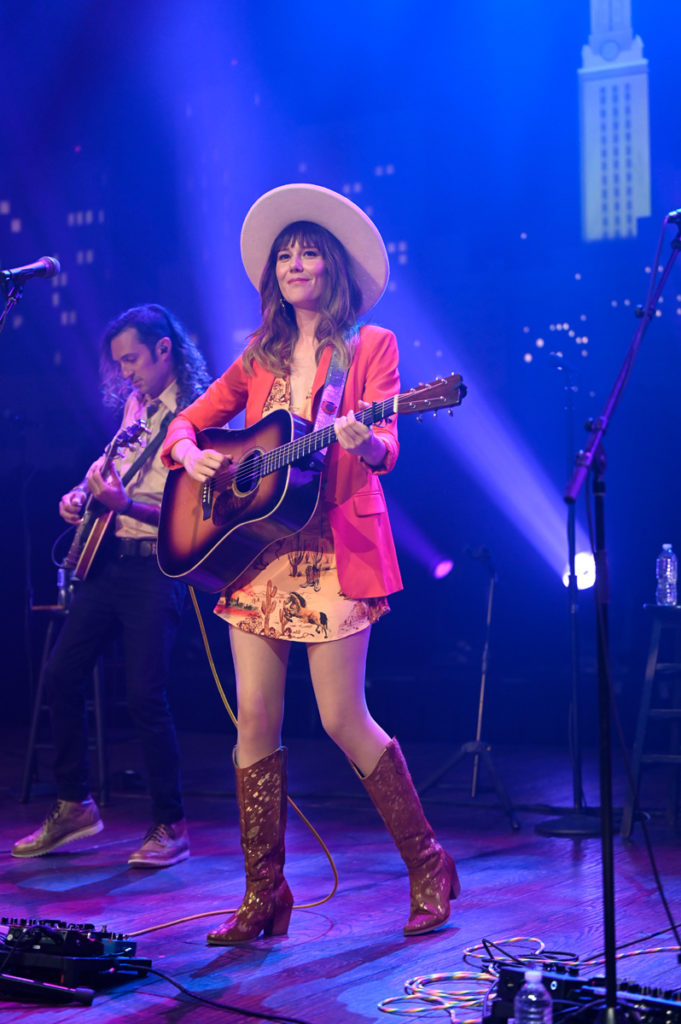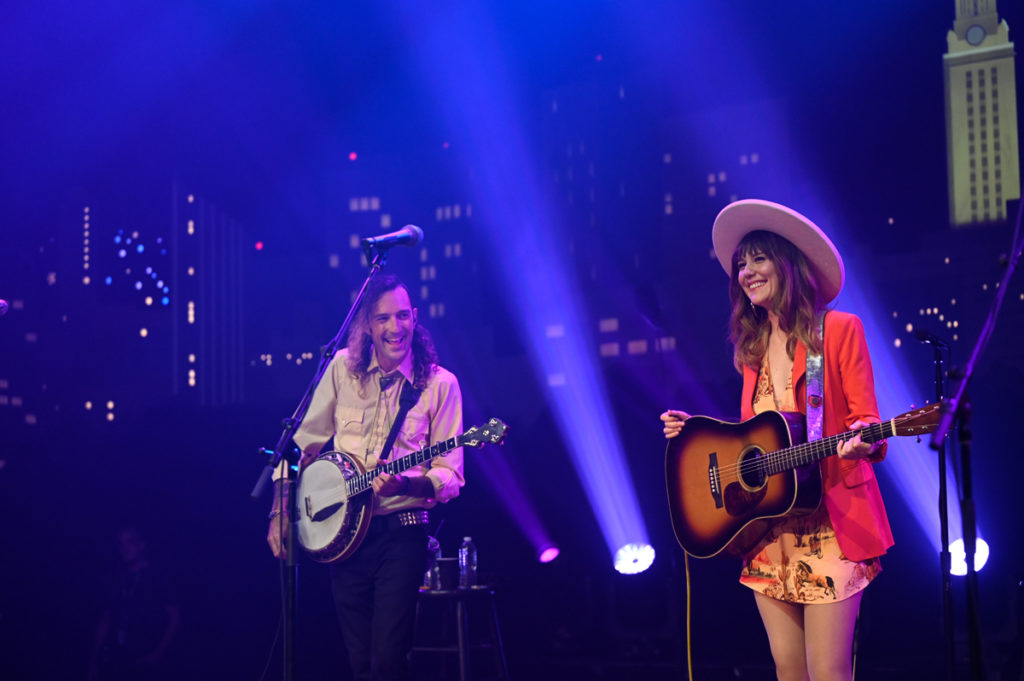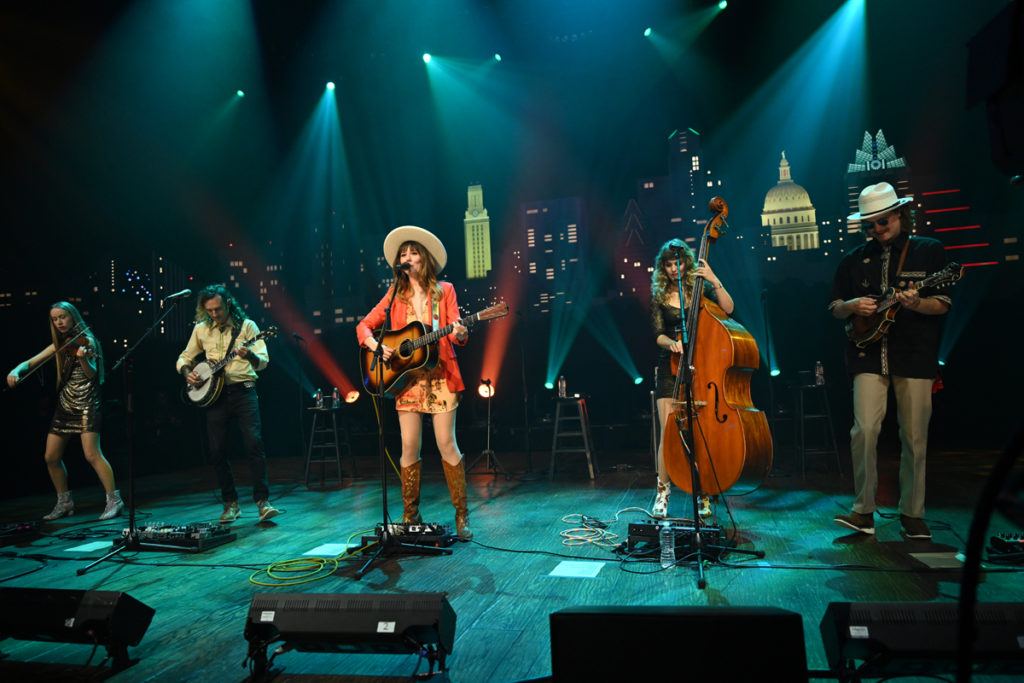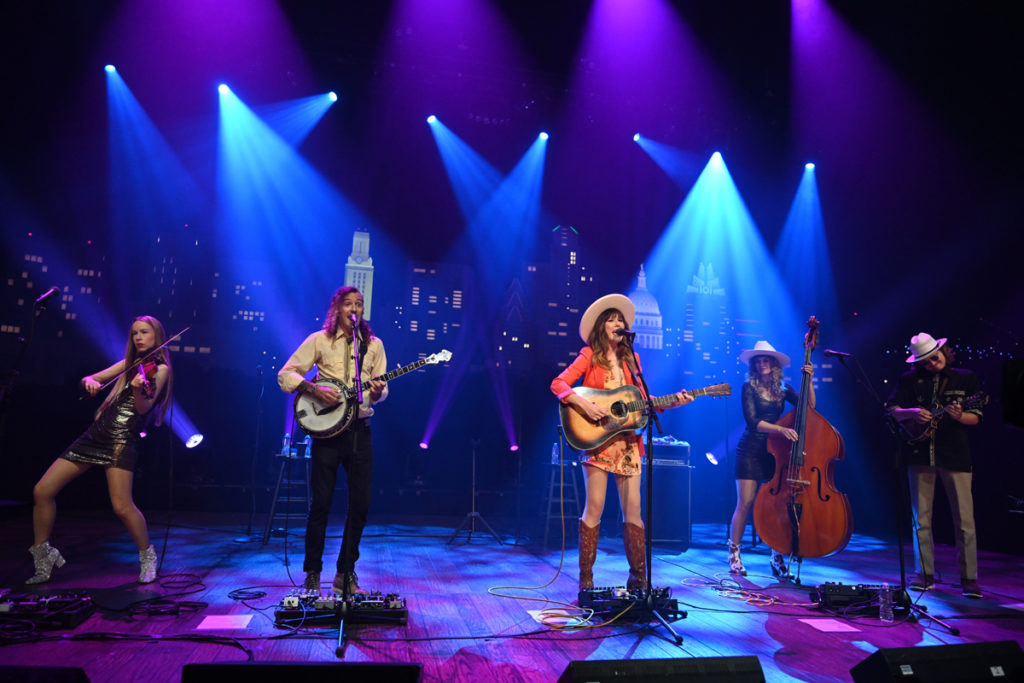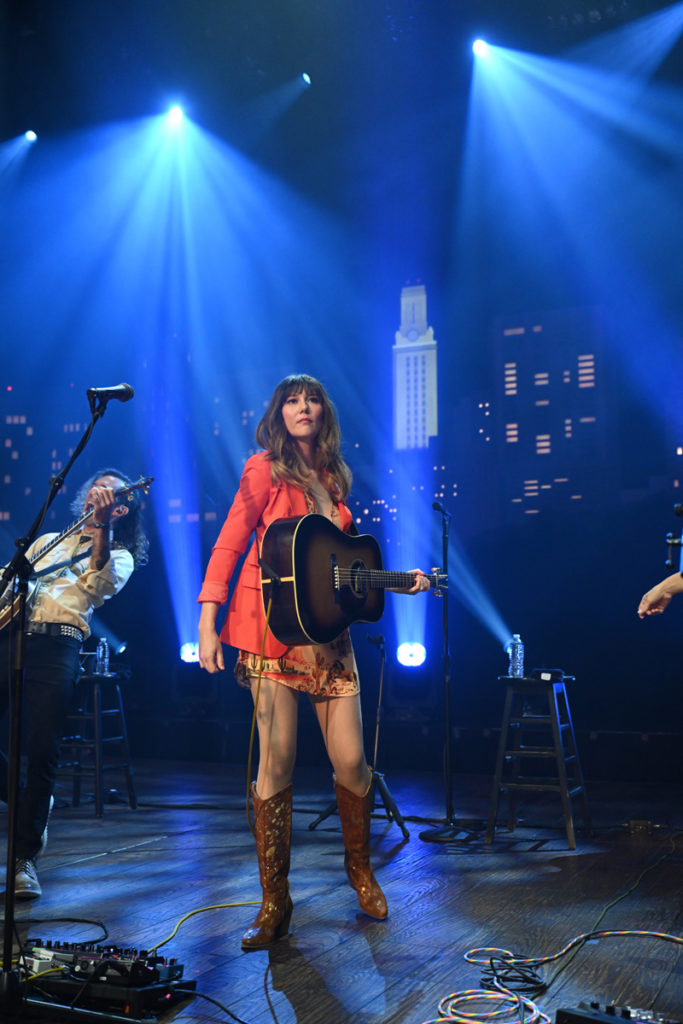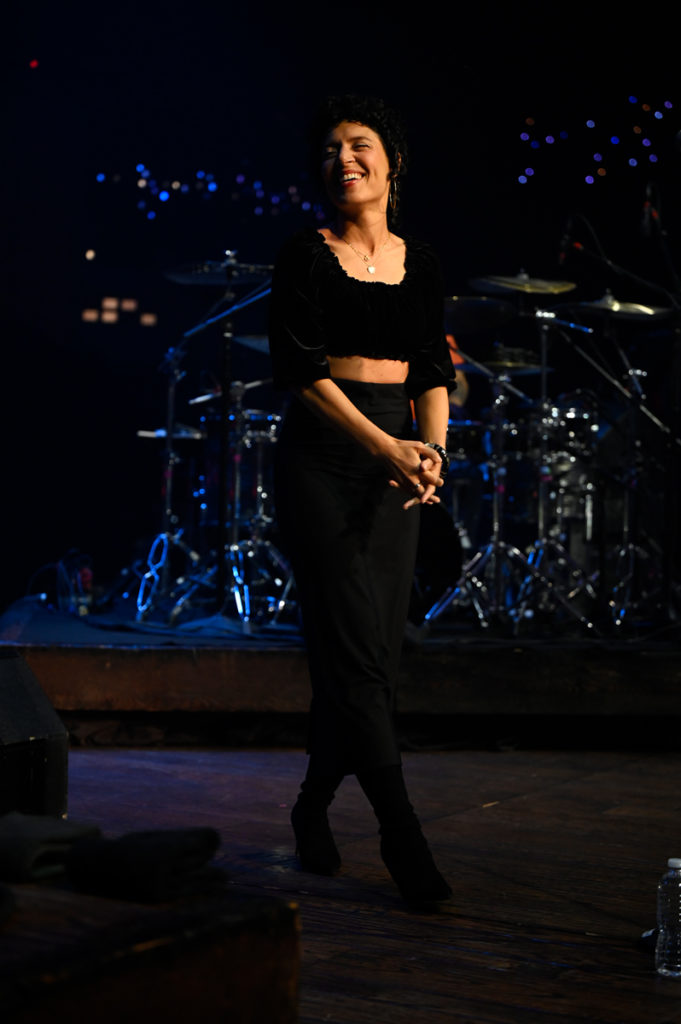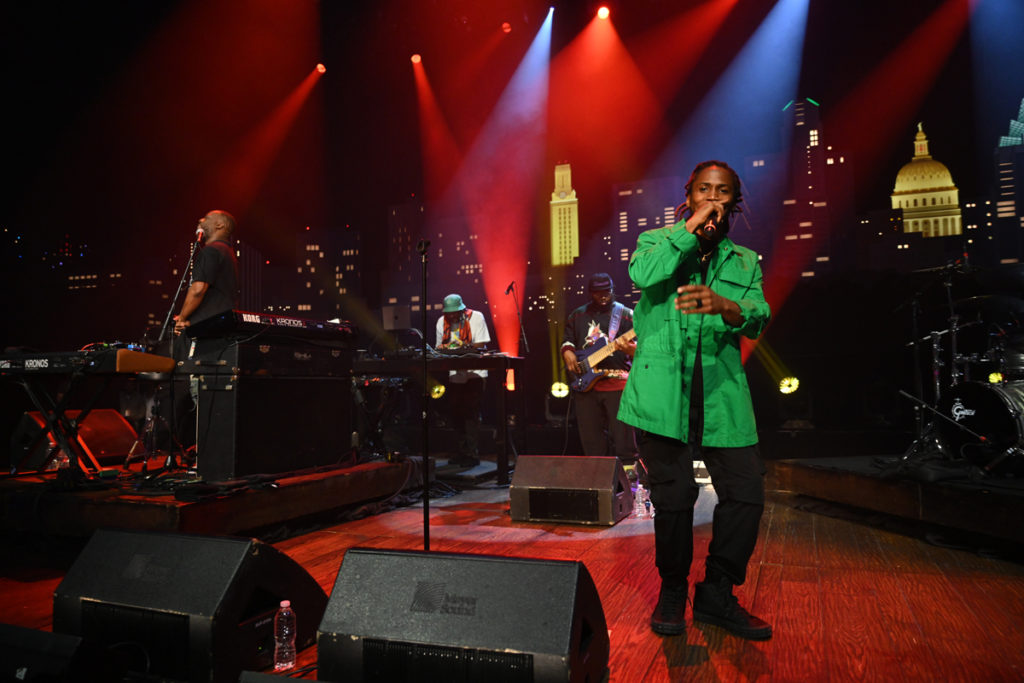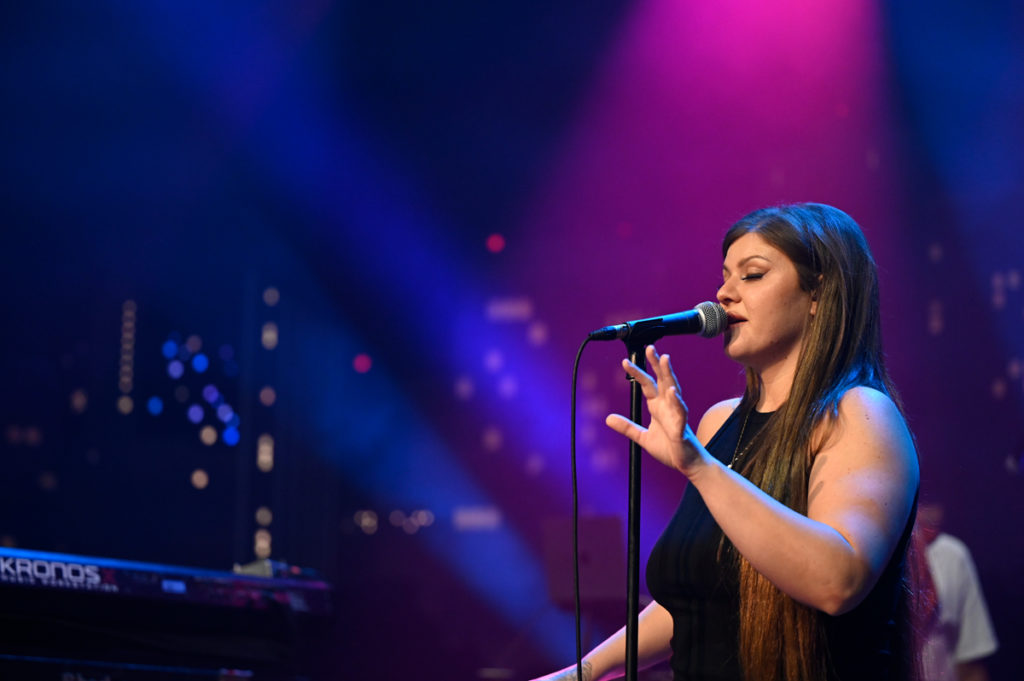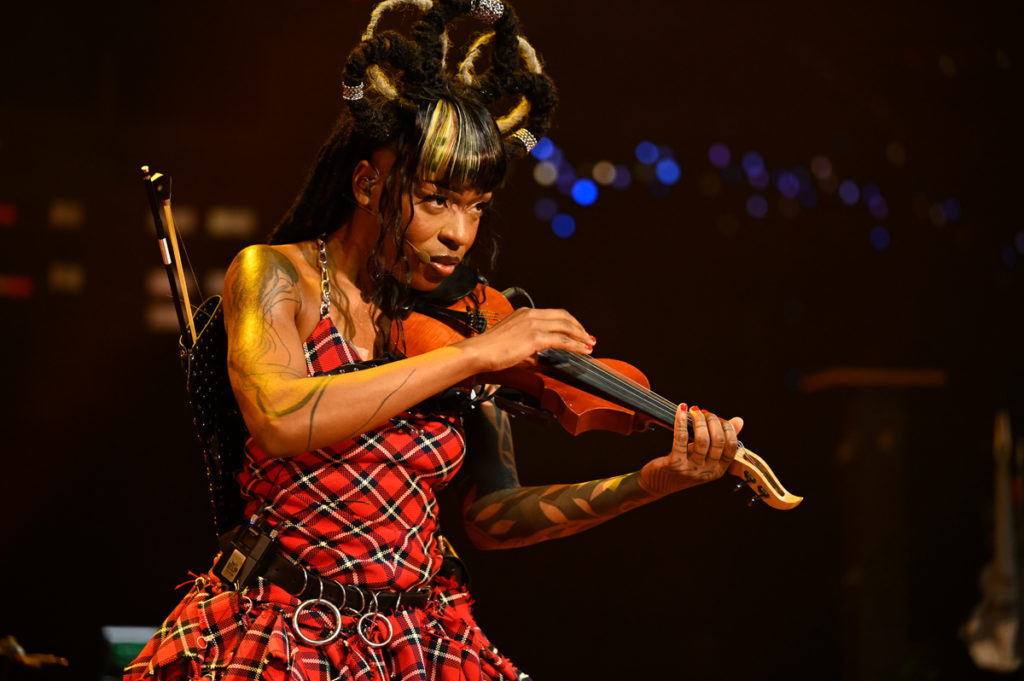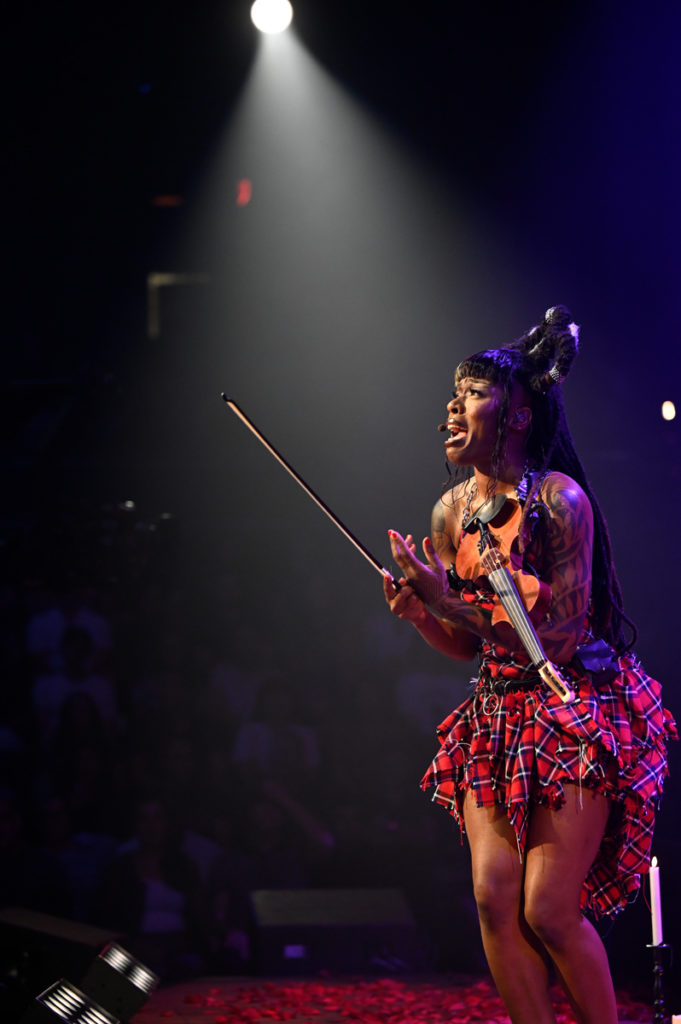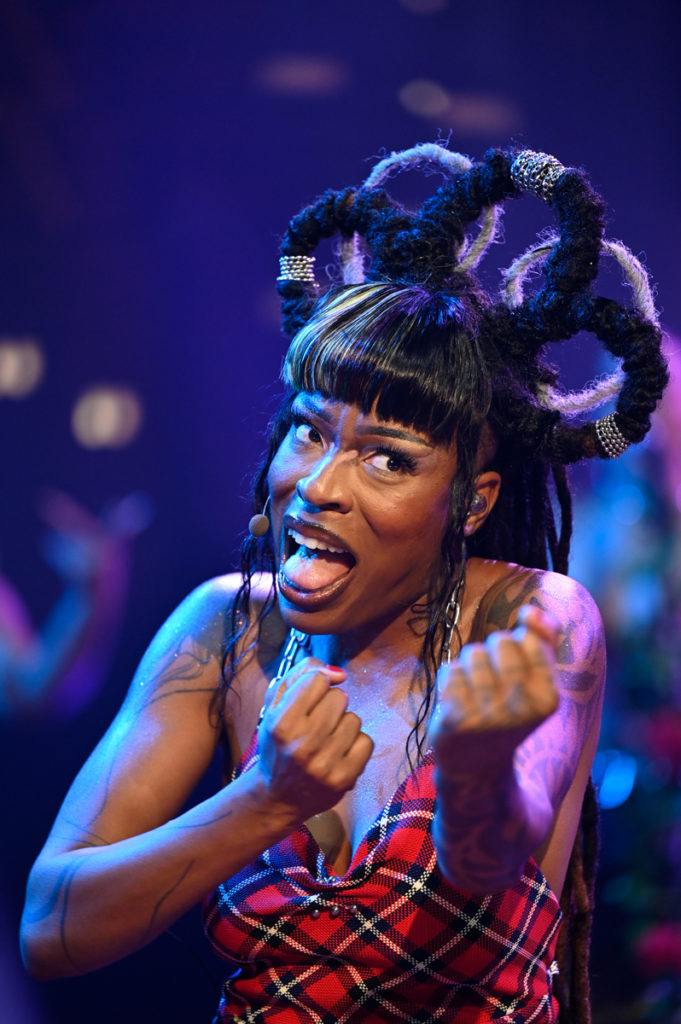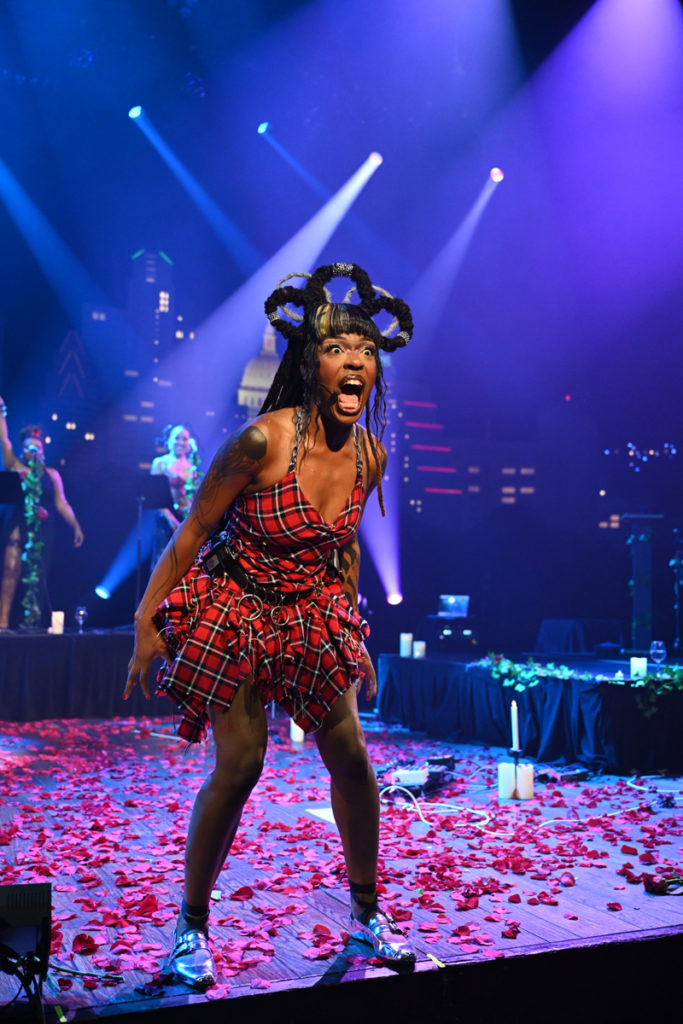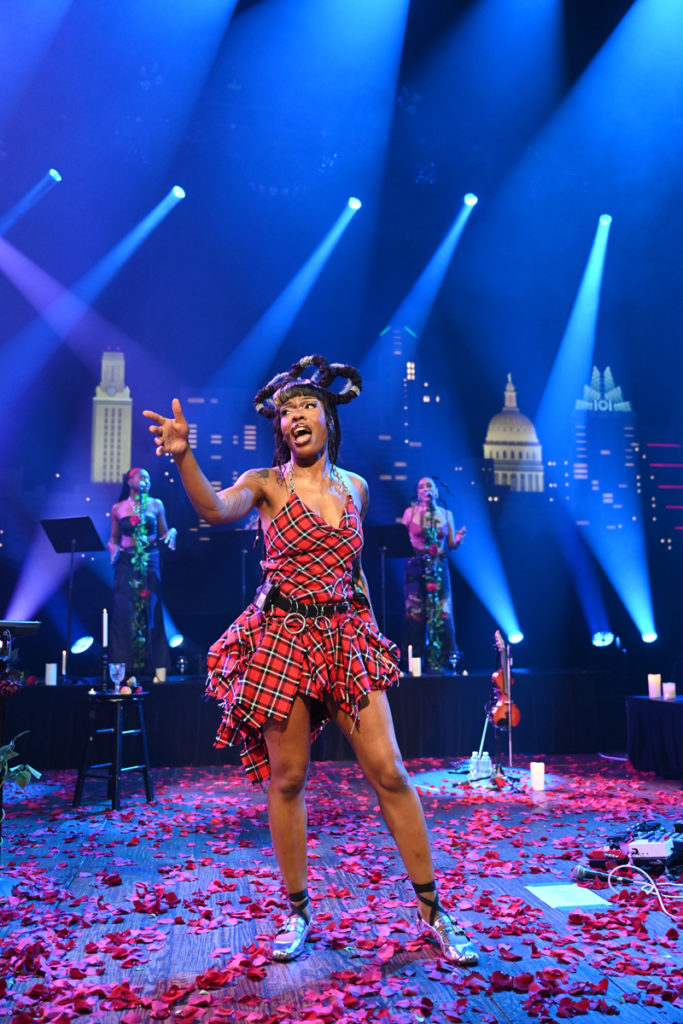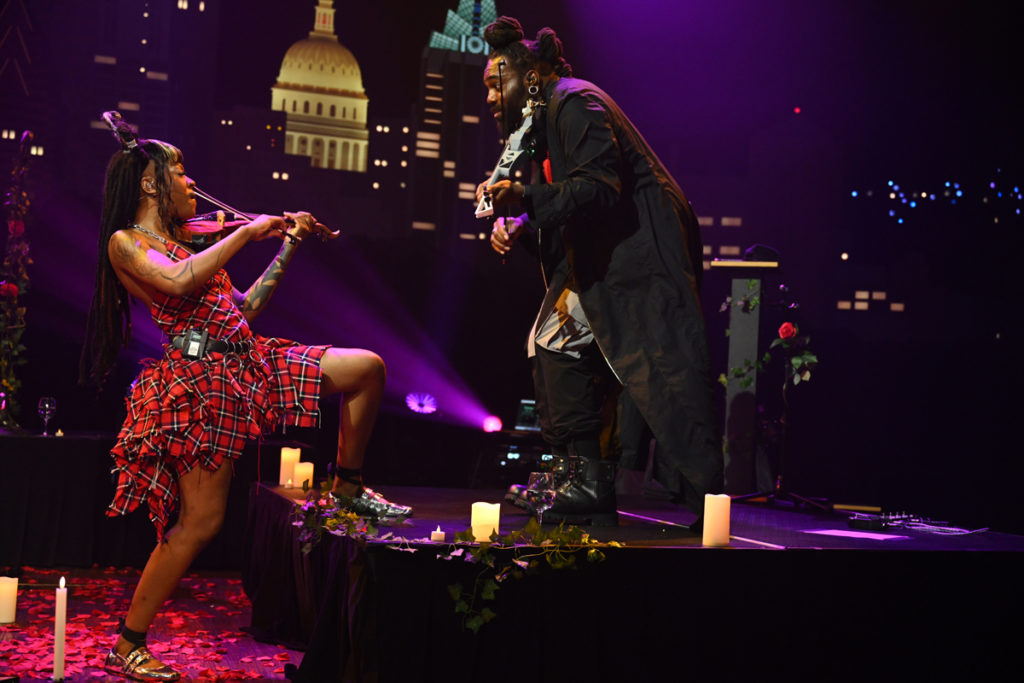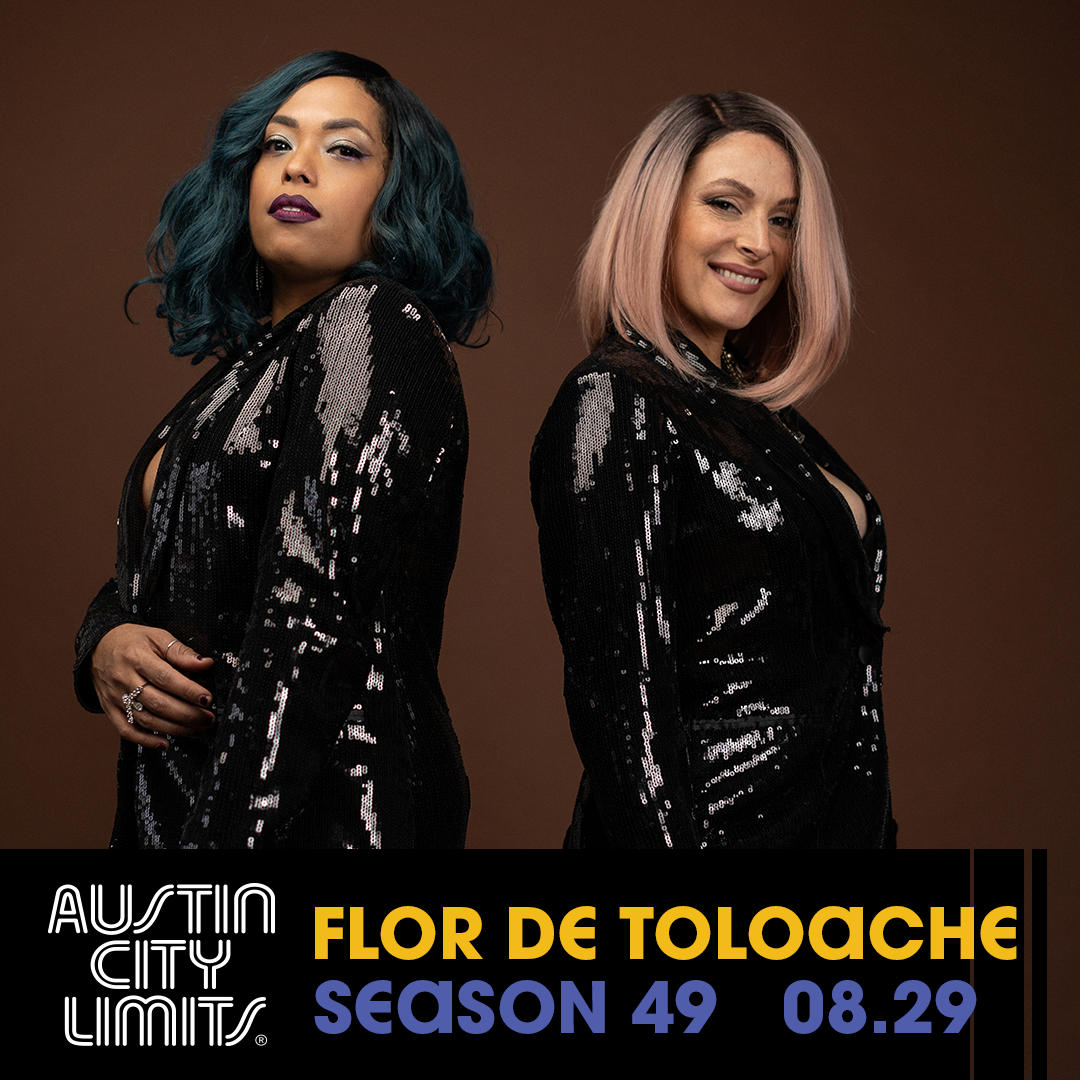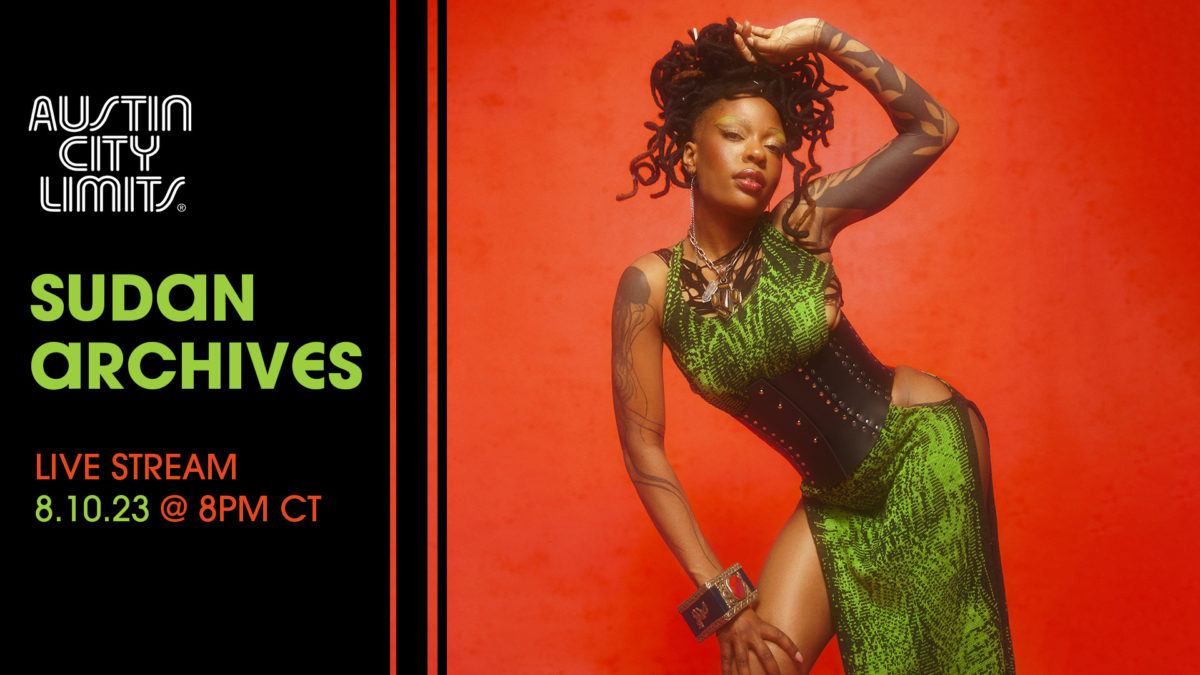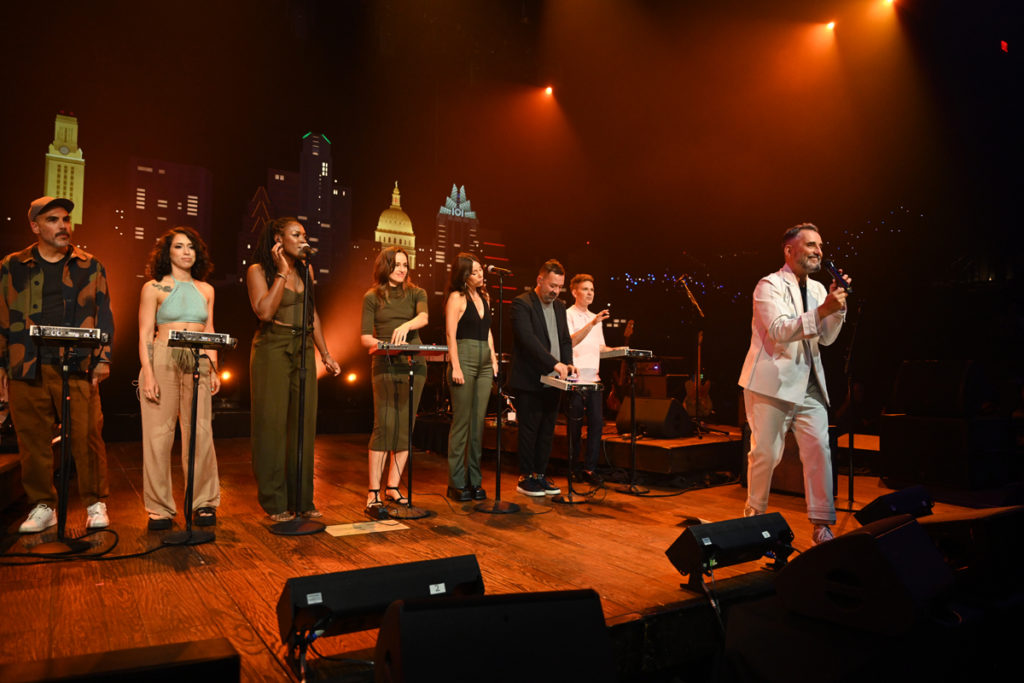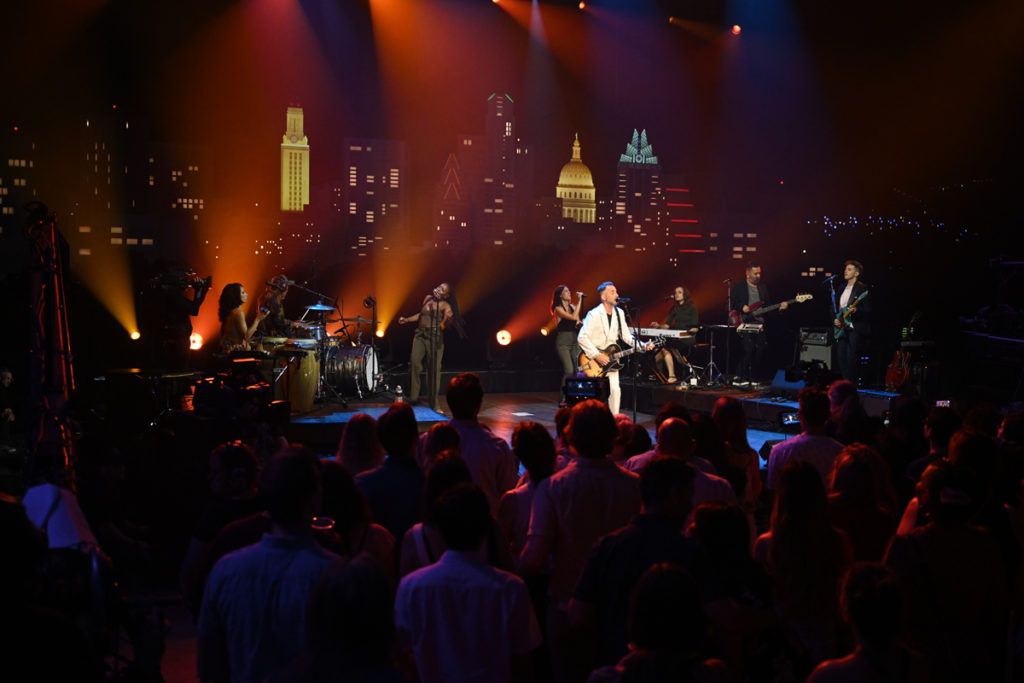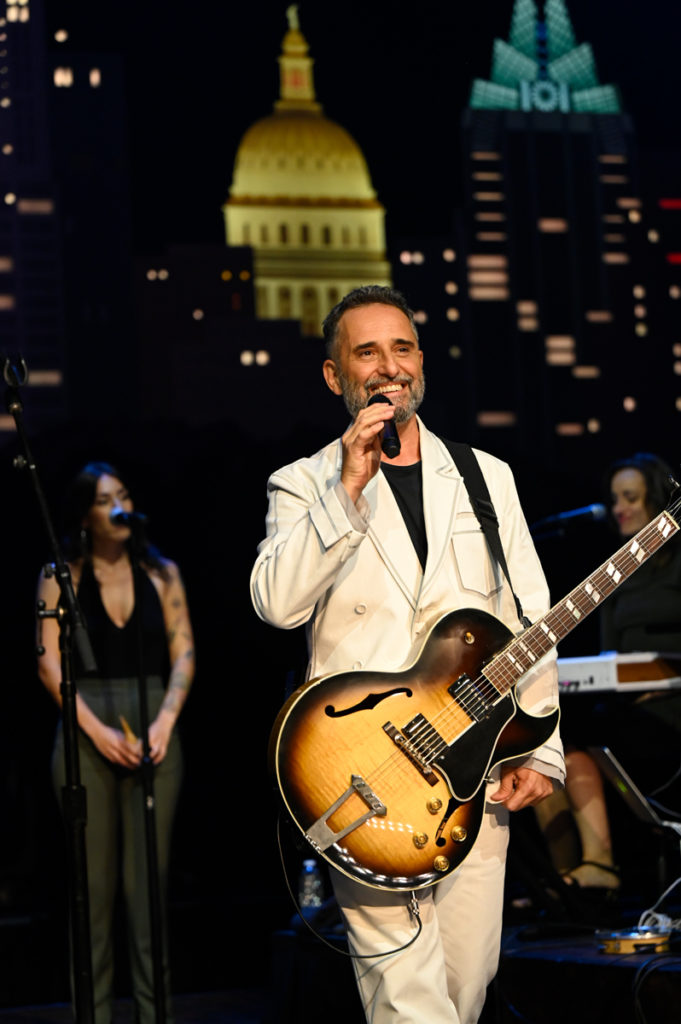Singer, songwriter, and guitarist Molly Tuttle is the very picture of modern bluegrass. Mindful of tradition but not restricted by it, the California native and her band Golden Highway take the old school style and carry it into the twenty-first century, dominating the 2023 International Bluegrass Association Awards with an astounding seven nominations, and picking up a 2023 Grammy as well for Best Bluegrass Album. Her 2022 album Crooked Tree and brand new City of Gold have set a new standard for this distinctly American music, and we were excited for her and her remarkable band to bring it to the ACL stage.
Before the show began, violinist Bronwyn Keith-Hynes, bassist Shelby Means, banjoist Kyle Tuttle (no relation), and mandolinist Dominick Leslie took the stage to the strains of the Beatles’ “Sergeant Pepper’s Lonely Hearts Club Band.” The quartet began “Evergreen, OK,” their fearless leader joining them before the first verse, as three part harmonies and tight riffing reconnected ACL to the bluegrass tradition. “This is something I’ve dreamed of for so long,” remarked Molly. “I’ve been watching this show since I was a little kid!” The band then launched into the brisk “El Dorado,” a song that shows off the guitarist’s lyrical skills as much as her, Leslie, and Keith-Hynes’ musicianship. Tuttle and the band veered from the highway into the honky-tonk for the cheeky “Side Saddle” and the waltzing road trip chronicle “Yosemite,” on which Molly and Kyle duetted. Leslie and Keith-Hynes (International Bluegrass Association Fiddler of the Year, as Molly pointed out) then faced each other at the front of the stage to kick off “Open Water,” the kind of bluegrass instrumental that sets fingers afire and leaves audiences exhausted on the players’ behalf.
It’s not clear when the Grateful Dead became a source of bluegrass standards (probably after Jerry Garcia teamed up with progressive bluegrass mandolinist David Grisman and singer/songwriter Peter Rowan in Old and In the Way), but Tuttle knows how to pick ‘em, with a sweet cover of the Dead’s “Dire Wolf.” The tempo surged forward and the band segued directly into the original “Over the Line,” metaphorical guns a-blazin’. Kyle Tuttle then took the mic for a happy-go-lucky take on folk legend John Hartford’s “Up On the Hill Where They Do the Boogie” (which Hartford himself performed when he was on the show in Season 3). The banjoist applied wah-wah to his axe and Molly exhorted the audience to “get freaky on the dance floor.” The speedy “Down Home Dispensary” – “an open letter to Tennessee, and I think it might apply to Texas too,” said Molly – kept the cheeky vibe going – “there’s too much politickin’ and not enough tokin’.” The more even-tempoed “Dooley’s Farm,” on the other hand, explored territory similar to Steve Earle’s “Copperhead Road,” with a legacy of illegal activity. Both were tunes that reiterate that this ain’t your grandfather’s bluegrass.
Golden Highway stuck to the minor keys for “Castilleja,” which didn’t hinder any of the fiery solos, and encouraged Keith-Hynes and Kyle Tuttle in particular to indulge a healthy jones for psychedelia. (No wonder the band has collaborated with fellow bluegrass ace Billy Strings.) “Next Rodeo” leaned more into traditionalism, spinning off the expression “this ain’t my first rodeo” for an assertion of confidence. Molly and the band cruised into the groovy shuffle “Where Did All the Wild Things Go,” recruiting the crowd for backing vocals and getting them into the spirit of rebellion that powers the song. Then it was time for “Crooked Tree,” one of Molly’s major anthems. After explaining how the song celebrates our differences and the uniqueness of everyone, the singer, who suffers from lifelong alopecia universalis, removed her wig for the performance. “I’m proud to be a crooked tree,” she sang, and there was little doubt from their adulation that the audience felt the same.
Back down the Golden Highway they rambled, ripping through “San Joaquin” in a flurry of band introductions, fleet-fingered licks, and hyperactive rhythm. Means started a heavy groove as Kyle introduced Molly, who was busy switching guitars. She went all clawhammer on the new axe to sing “Take the Journey,” a tune from her 2019 album When You’re Ready that predated the arrival of Golden Highway. Not that it mattered, as the crowd clapped along and the entire band hit the lip of the stage to end the main set with a flourish. But Molly and her gang returned to do the encore old school – no amplification, one microphone, and the sweet love song “More Like a River.” They brought it home with Leslie’s frisky instrumental “Clam Tide.”
It was a dazzling show of twenty-first century bluegrass, full of fire and fun, and we can’t wait for you to see it when it airs this fall on your local PBS channel as part of our upcoming Season 49.
